Humpty Dumpty’s reflection in Lewis Carroll’s Through the Looking Glass that words mean what you chose them to mean clearly applies to the Chinese Communist Party. Having previously informed the world that freedom, democracy and human rights are not universal values, Xi Jinping’s regime now insists that democracy ‘with Chinese characteristics’ contains none of the principles that constitute it. This should be the final confirmation, if still required, that the CCP is a totalitarian regime dedicated to preserving its own existence, rather than the dignity and freedom of the Chinese people.
Speaking recently, Li Zhanshu, the Chairman of the Standing Committee of the National People’s Congress, enunciated in detail what Xi had outlined previously. Regarded as the number three official in the CCP, Li listed five ideas that are rejected by the CCP, namely, ‘so-called “constitutionalism”, multi-party elections, the division of powers, the bicameral system, and the independence of the judiciary’. What remains of democracy after the removal of these foundational pillars?
The answer is the same one to most questions about the Chinese regime: the CCP leadership is supreme and must be protected at all costs. Li spelt this out clearly in enunciating six doctrines of Chinese ‘democracy’, insisting that adherence to ‘the Party’s overall leadership as the highest political principle’ and ‘firmly upholding the authority of the Party Central Committee and centralised and unified leadership’.
The second doctrine is the rejection of Western democracy. The other doctrines reveal how undemocratic the regime is. The Chinese people must believe and promote the notion that the system empowers them and makes them the master of their own destiny. As usual, the principles are circular. The CCP leads the People’s Congress according to the fifth principle. Finally, the Chinese people are instructed to ‘tell good stories about Chinese democracy’!
Not that any other narratives are permitted in China. The Party is implementing regulations to ban all media not funded by the CCP. Only officially approved ‘news’, including about financial and economic issues, will be permitted. Already severe restrictions on foreign media have been tightened. Journalists seeking to cover the Winter Games are being obstructed. In addition, all Chinese media personnel are now required to undertake ninety hours ‘continuing education’ each year to retain their accreditation. Anyone who attempts an independent voice, such as the former Hong Kong media proprietor, Jimmy Lai, who is on trial this week, is silenced. Human rights organisations such as Amnesty International and Human Rights Watch are withdrawing from Hong Kong, citing the draconian new security laws as the reason. The digital platforms, LinkedIn and Yahoo, have abandoned operations in China and others may follow. Even Wikipedia has drawn a line, banning seven pro-Beijing editors and removing the administrative powers of another twelve. The only narrative allowed in China is Xi Jinping thought.
The time has come to actively promote real democracy.
First, the Chinese regime should be called out continually for what it is. The aphorism – wrongly attributed to Mark Twain – that ‘a lie can have travelled half-way around the world before truth get its boots on’ is pertinent. Democratic nations are tiring of the CCP’s bullying behaviour and rejecting its ‘wolf warrior’ diplomacy. A recent EU parliamentary resolution encouraged ‘the EU and Member States to deepen cooperation with Taiwan in confronting disinformation from malign third countries’, specifically naming China.
Secondly, democracies must support each other when confronted by the CCP. Again, this is increasingly occurring, as nations realise that strength lies in cooperation. Collaboration has increased militarily. Canada, for example, which has been somewhat ambivalent towards China, engaged in a right of passage naval exercise with the US in the South China Sea recently. The UK, the Netherlands and even Germany have participated in naval exercises in the western Pacific.
Perhaps the most interesting shift is occurring in Europe as the political elite slowly realise that the lure of trade has its limitations. Led by smaller nations, such as Lithuania, Slovakia and the Czech Republic, the EU is waking up to the reality of the CCP. Last week, an inaugural European parliamentary delegation visited Taiwan. ‘We came here with a simple message: Taiwan is not alone. Europe is standing with you in the defence of freedom, democracy and human dignity,’ said Raphael Glucksmann, Chair of the delegation. The visit followed the passage of the first-ever stand-alone report in the EU parliament on EU-Taiwan political relations and cooperation. The report, adopted by 580 to 26 votes, recommended that the EU resume work on a bilateral investment agreement, and for Taiwan’s inclusion in international organisations, such as the WHO.
The latter is also the focus of the US administration, which is calling for meaningful participation by Taiwan in the United Nations system. Secretary of State, Antony Blinken, noted on 26 October that ‘as the international community faces an unprecedented number of complex and global issues, it is critical for all stakeholders to help address these problems. This includes the 24 million people who live in Taiwan. Taiwan’s meaningful participation in the UN system is not a political issue, but a pragmatic one’.Increasingly, China is being criticised for misusing UN resolution 2758, which recognised the PRC, by excluding Taiwan from international activities. Not only are other nations calling out China’s appalling human rights record but are recognising that a free-trading democracy should be encouraged. This is partly pragmatic, for example, recognising Taiwan’s pre-eminence as a semi-conductor manufacturer, but also strategic. If the CCP was to rule Taiwan, nearby nations like Japan, Korea, Vietnam and the Philippines would be severely impacted, not to mention the dangers to international trade and regional harmony.
The free world must support democratic regimes, such as Taiwan. Unlike China, Taiwan is a thriving democracy that has been self-governed for more than 70 years. If you want to see the future of Taiwan under the CCP, just look to the repression being inflicted on the people of Hong Kong. Perhaps the best support, beyond military cooperation, is the clear assertion that any forceful measure against Taiwan would lead to economic and international isolation resulting in the fermentation of internal unrest for China. China suffers many internal problems. If the price of ‘winning’ is too high, it will maintain the status quo. After all, the preservation of the CCP is the critical concern for the Chinese political elite.
Got something to add? Join the discussion and comment below.
Get 10 issues for just $10
Subscribe to The Spectator Australia today for the next 10 magazine issues, plus full online access, for just $10.
You might disagree with half of it, but you’ll enjoy reading all of it. Try your first month for free, then just $2 a week for the remainder of your first year.

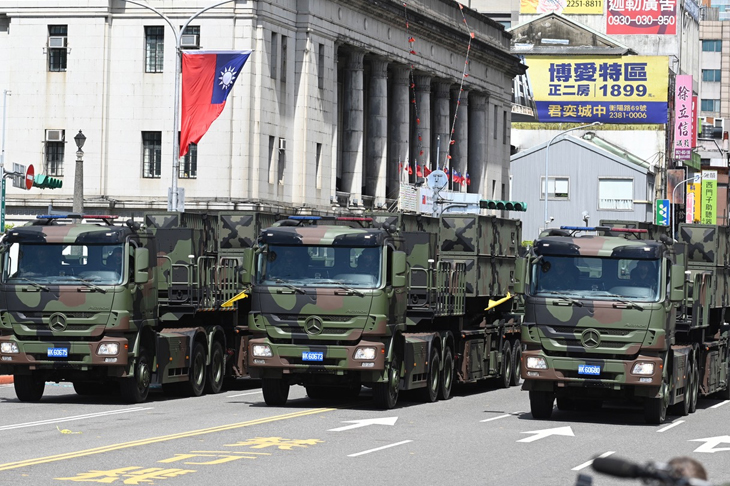
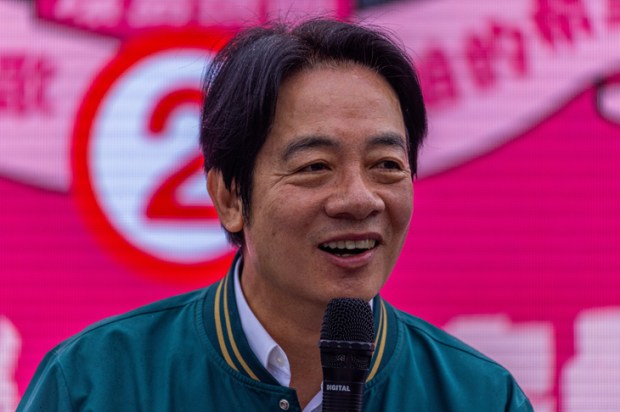

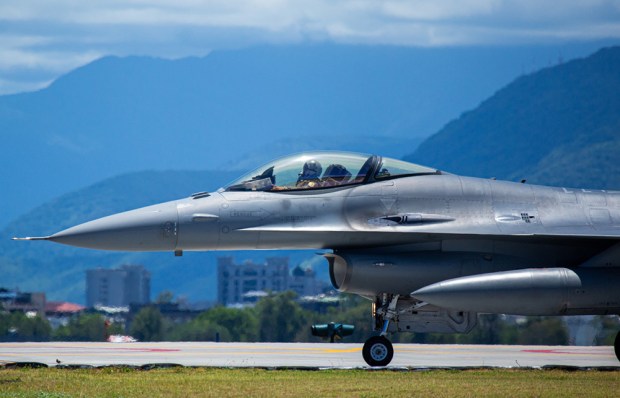
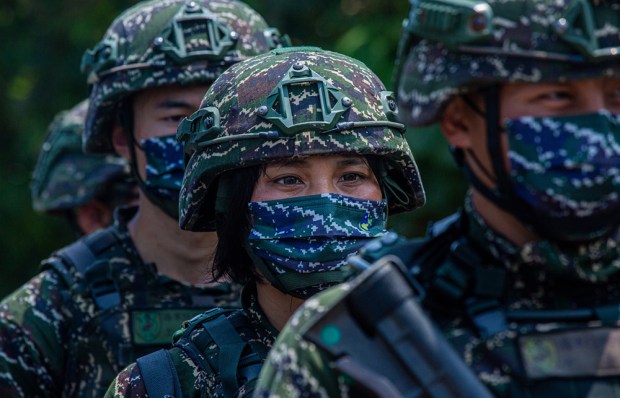
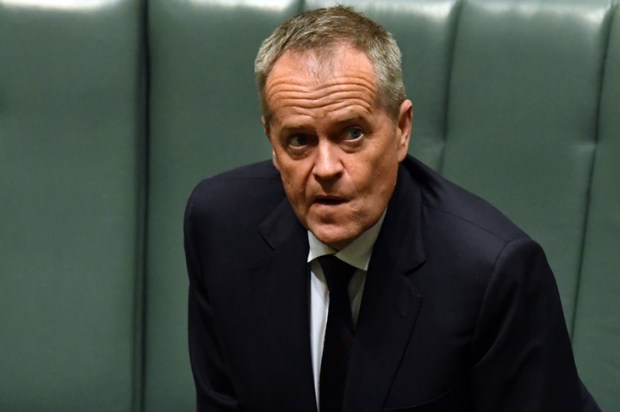







Comments
Don't miss out
Join the conversation with other Spectator Australia readers. Subscribe to leave a comment.
SUBSCRIBEAlready a subscriber? Log in